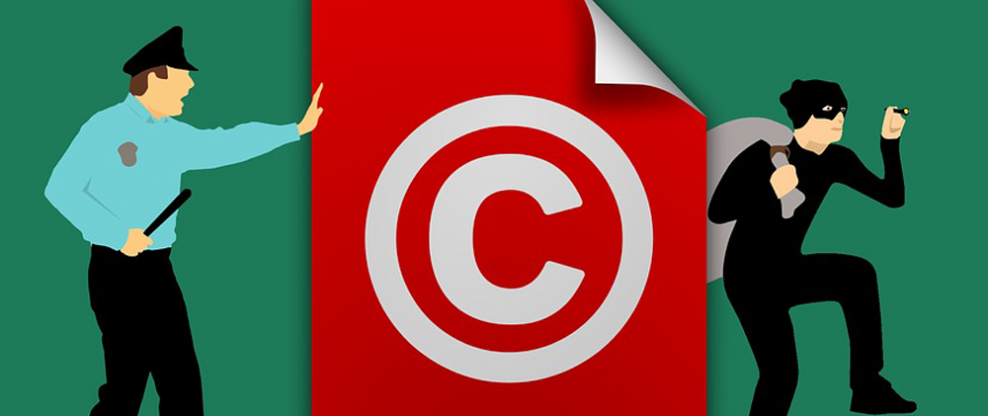“You should learn from your competitor, but never copy. Copy and you die”.
– Jack Ma
Copyright as a concept has evolved in the past few decades, with the introduction of technology changing the way we live and work. What is undeniable, though, is that copyright is not just a new age concept. The word ‘copyright’ and its definitions date back to the 15th century when the need to protect published work emerged with the introduction of the printing press.
Copyright is an integral part of the Intellectual Property rights, thus symbolizing the fact that one’s creativity is as much one ‘s property as any other object created or purchased with money. Although the Copyright Act, 1957 describes ‘Copyright’ in very specific terms, World Intellectual Property Organization has given it a wider meaning, defining it as ‘a set of rights granted by statute to literary, dramatic, musical and creative writers and creators of film and sound recordings.’ Copyright simply stands for the fact that credit is paramount in terms of ownership and, as a result, infringement becomes a serious crime, both in civil and criminal laws.
The criminalization of the violation of copyright was based on the fact that the violation was not limited to the loss of money and that just a civil action is not sufficient for the damage. theft of artistic creation is a criminal offense and therefore the criminalization of copyright infringement is one of the most important aspects of modern law, making it punishable in nature. The Copyright Act defines copyright infringement under Articles 4 and 51, it states that infringement happens when a person deliberately or accidentally copies or uses the work of another person without credit. It is generally divided into two categories: primary infringement and secondary infringement. The former is the simple result of copying, while the latter involves unauthorized dealings such as selling pirated books, importing, etc. In the case of secondary infringement, the infringer has the knowledge and information of the violation which may not be present in the case of primary violation. In India, copyright infringement tends to occur when copies of copyrighted works are made for sale/hire without the permission or authority of the original owner, for instances cases, where infringed copies are distributed for the purposes of trade and personal gain, or where infringed copies are publicly exhibited in a manner which is detrimental to the owner, or when infringement copies are imported or exported.
The copyright law, the trademark act, the Code of Criminal Procedure, the Indian Penal Code, the Civil Procedure Code, the Customs Act, and the Evidence Act have laid down certain sections that can provide the remedy to the copyright holder, in case their rights have been violated. The owner, whose workpiece is alleged to have been infringed, should lodge a criminal complaint alleging the charges referred to in Section 420 of the IPC, along with Section 63 of the Copyright Act. Provisions of Section 420 of the IPC applies to cheat on someone else by way of false representation. The criminal sanctions imposed by the above-mentioned acts include imprisonment for a minimum period of six months and a maximum term of three years, and a fine ranging from fifty thousand to two lakhs, but then again, where the violation has not been committed for benefit in the course of trade or service, the court can, for reasonable and special reasons to be set out in the judgment award imprisonment ranging up to 6 months or fine up to fifty thousand or both, and in the event of reoffending, imprisonment shall be for a minimum of one year and a maximum of three years and the fine shall range between one lakh and two lakhs. Sanctions are also imposed against co-conspirators under Articles 63, 63A, 63B, and 65 of the Copyright Act and Articles 37, 120A, 120B, of the Indian Penal Code.
Logos and designs used as brand symbols for the representation of companies are protected as trademarks, If they are original works of art that contain a component of creativity, they are entitled to come under the ambit of copyright protection, not only through the mentioned acts but under the Trademark act as well. The penal provisions laid down under section 103 and 104 are somewhat similar to those of copyright act, providing imprisonment which can range from six months to three years, along with a minimum fine of fifty thousand which can be increased to two lakhs, but the key benefit of taking action under copyright law is that, under Section 64(1), a police officer above the rank of sub-inspector is empowered to seize the infringing copies of the original work without a warrant. It was in the case of NCT of Delhi vs. Naresh Kumar Garg and Jitendra Prasad Singh v. State of Assam that the court held that the offense under Section 63 of the Act is cognizable and non-bailable. Thus, when it is deemed a cognizable offense it empowers the investigating officer to make an arrest and to initiate an investigation without a court order in compliance with Section 156(1) of the Code of Criminal Procedure, 1973.
Awareness of copyright infringements and copyright laws is essential in a developing society, as innovation is the essence of development. Criminal prosecution of copyright infringements in India has been uneven, with pending trials, appeals, and amendments. Although the copyright laws of India need to be streamlined, what is wonderful is that progress is noticeable despite being slow. The landmark cases in this regard are significant because of the changes they have made to the law. From a legal perspective, the modifications are not necessarily visible or drastic, but they are significant, particularly though they repeat a basic and narrow concept. What is also undeniable is the fact that it is necessary to know and work for the improvement of the Copyright Law, but before working for it, it is pertinent to be aware of it in the first place, and hopefully, with the growing spectrum of copyright laws, it will be acknowledged by the whole of the legal fraternity.


I would like to show some appreciation to this writer for bailing me out of this dilemma. Because of scouting throughout the internet and getting principles which are not productive, I was thinking my life was done. Being alive devoid of the strategies to the problems you have solved all through your entire article content is a crucial case, as well as the kind that might have negatively affected my entire career if I had not come across your web blog. Your own personal expertise and kindness in maneuvering all the pieces was invaluable. I am not sure what I would’ve done if I hadn’t discovered such a thing like this. It’s possible to at this moment relish my future. Thanks a lot so much for your professional and result oriented help. I will not hesitate to recommend your web site to any person who wants and needs guidelines about this issue.
I want to convey my passion for your kindness for persons who absolutely need guidance on this one matter. Your personal dedication to passing the message all-around became remarkably interesting and has continuously permitted girls like me to attain their goals. Your own helpful suggestions entails this much to me and a whole lot more to my peers. Regards; from everyone of us.
I actually wanted to type a remark so as to say thanks to you for all of the remarkable concepts you are placing on this site. My time consuming internet research has now been compensated with really good know-how to write about with my relatives. I would assume that many of us readers are undeniably fortunate to live in a perfect website with many marvellous professionals with good plans. I feel really privileged to have seen your entire web pages and look forward to some more enjoyable times reading here. Thanks once more for all the details.
Thanks for every one of your efforts on this website. Kate loves getting into research and it’s really easy to understand why. A number of us hear all relating to the dynamic mode you deliver functional guidelines via the blog and as well recommend contribution from other individuals on the idea while our daughter has always been discovering a lot of things. Have fun with the rest of the year. You’re carrying out a fantastic job.